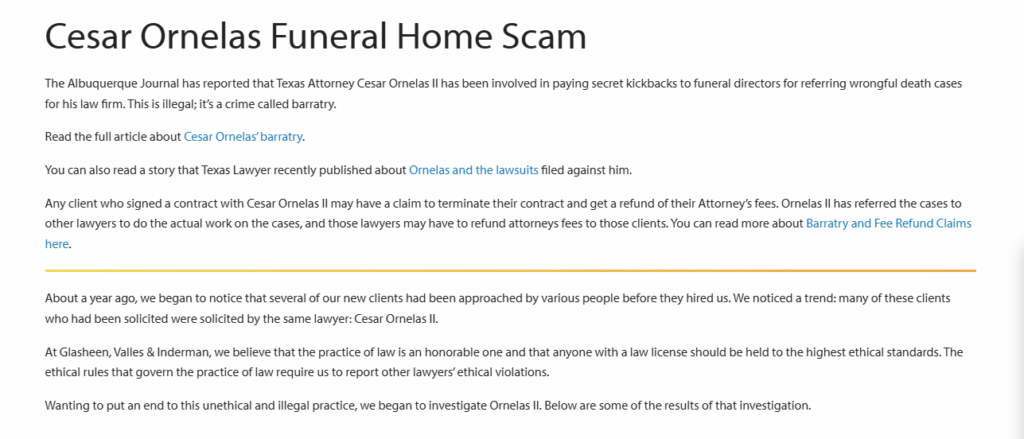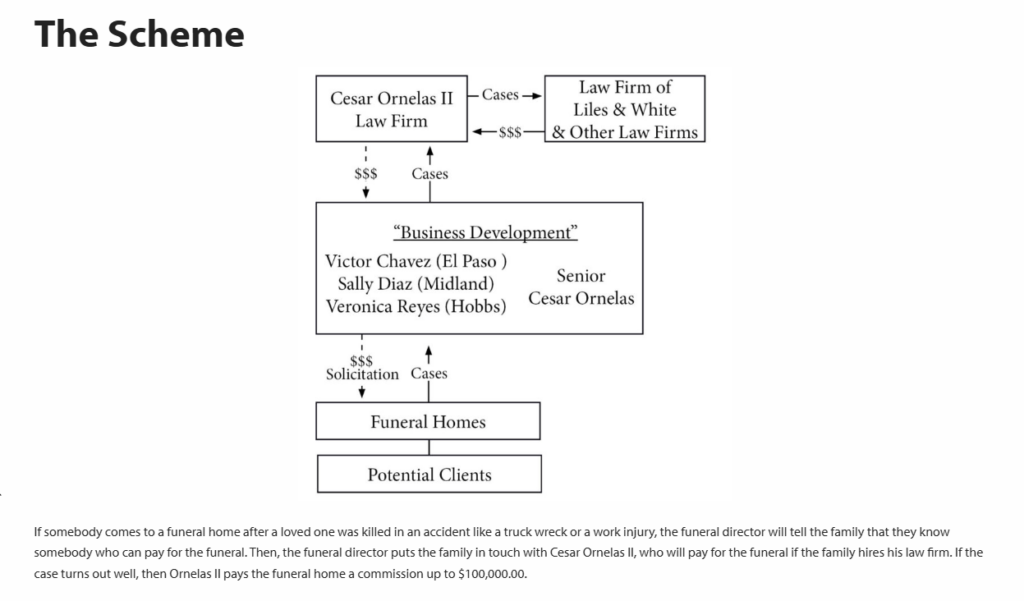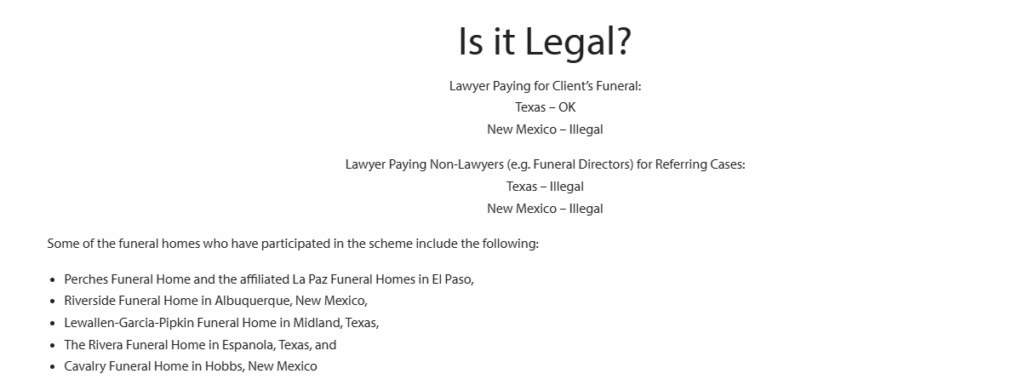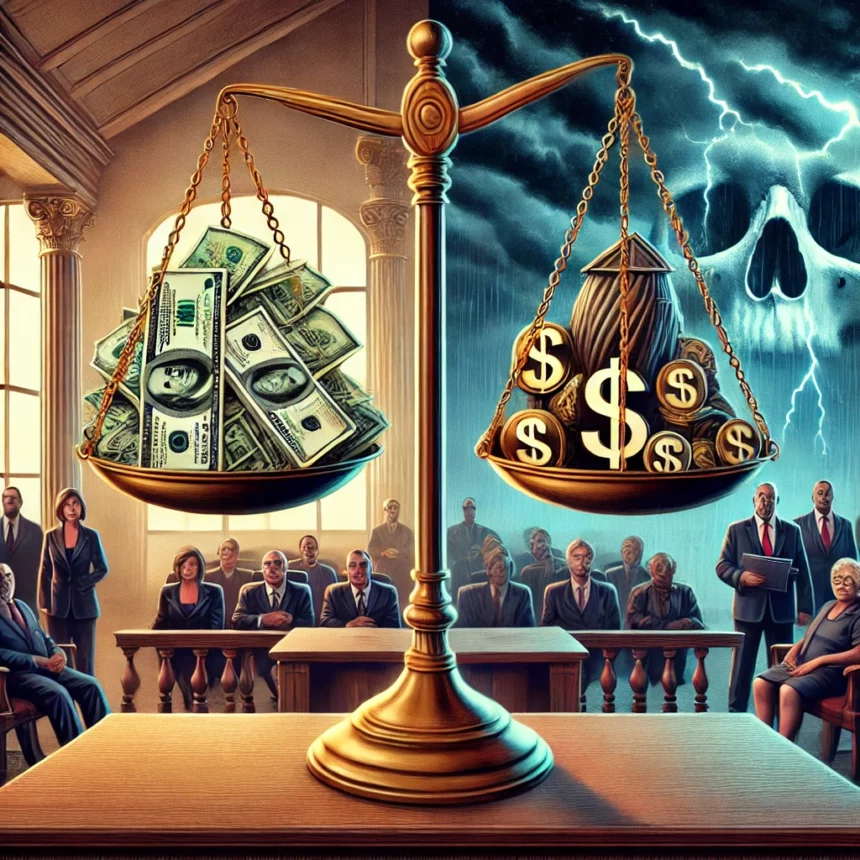Introduction
Cesar Ornelas II, a prominent attorney based in Texas, has been the subject of multiple allegations and legal disputes that have cast a long shadow over his professional career. Accusations of barratry—the illegal solicitation of clients—as well as claims of unethical collaborations with funeral homes have surfaced, tarnishing his reputation and raising serious ethical concerns within the legal community. While Ornelas maintains his innocence, the mounting legal challenges and public scrutiny suggest a deeper examination of his practices is warranted.
Barratry, often referred to as “ambulance chasing,” is the unethical and illegal practice of soliciting clients through improper means. In Texas, this offense is not only a violation of professional ethics but also a criminal act, designed to protect the public from exploitation during vulnerable times. Allegations against Cesar Ornelas II center around claims that he engaged in systematic barratry through partnerships with funeral homes, exploiting grieving families in exchange for financial gain.

Understanding Barratry: The Alleged Core of the Issue
According to multiple lawsuits, Ornelas allegedly orchestrated a scheme wherein funeral directors would refer bereaved families to his law firm. These referrals purportedly came with promises to cover funeral expenses if the families agreed to sign contracts with his firm. In exchange, the funeral homes, including those owned by his father, Cesar Ornelas Sr., reportedly received lucrative commissions. Reports suggest that these payouts could reach as high as $100,000 per client, making the practice not only unethical but highly profitable.

Legal Actions and Fallout
The alleged barratry scheme has led to numerous lawsuits against Cesar Ornelas II and his associates. In 2019, civil suits were filed accusing Ornelas of leveraging his father’s funeral home business, Angel Lucy’s Funeral Homes, to solicit clients illegally. These lawsuits claimed that the operation was a “family business” designed to profit from the misfortunes of others by exploiting moments of vulnerability.
While Ornelas has categorically denied these allegations, calling them baseless and motivated by jealousy from competitors, the legal challenges have not abated. Court filings detail instances where families were allegedly approached by funeral directors acting as intermediaries for Ornelas’ law firm. Some plaintiffs have described feeling pressured into signing legal contracts while still grappling with the emotional toll of losing a loved one.
Despite his public denials, the lawsuits have undoubtedly caused significant damage to Ornelas’ reputation. The cases have also raised broader questions about the accountability of attorneys and the systems that allow such practices to persist.

The Role of Angel Lucy’s Funeral Homes
A key element in the allegations against Cesar Ornelas II is the involvement of Angel Lucy’s Funeral Homes, owned by his father, Cesar Ornelas Sr. The funeral homes are accused of playing a pivotal role in the alleged barratry scheme by acting as a bridge between grieving families and Ornelas’ law firm. Funeral directors reportedly assured families that hiring Ornelas would ease their financial burdens, effectively turning the grieving process into a transactional arrangement.
This alleged collaboration has brought scrutiny not only to Ornelas II but also to his father’s business practices. The ethical implications are profound, as the funeral industry is expected to serve families with compassion and integrity, not as a gateway for legal profiteering. If proven true, these actions represent a betrayal of trust at one of life’s most sensitive junctures.
Family Feuds and Public Disputes
The controversies surrounding Cesar Ornelas II are further complicated by a highly publicized feud with his father. In 2021, Cesar Ornelas Sr. accused his son of stealing millions of dollars, leading to a legal battle that included a temporary restraining order against the elder Ornelas. The dispute unfolded publicly, with both parties airing grievances on social media, adding fuel to the ongoing controversies.
While the family feud may seem like a separate issue, it underscores the chaotic and contentious environment surrounding the Ornelas family businesses. The discord has not only attracted public attention but has also intertwined with the legal challenges faced by Cesar Ornelas II, casting doubt on the stability and integrity of his operations.
Ethical Implications for the Legal Profession
The allegations against Cesar Ornelas II highlight significant ethical lapses that, if proven true, could have far-reaching implications for the legal profession. Barratry undermines the public’s trust in attorneys and the judicial system, exploiting individuals during moments of grief and vulnerability. The purported involvement of funeral homes in these practices exacerbates the issue, raising questions about the ethical responsibilities of both industries.
For the legal community, cases like this serve as a stark reminder of the importance of maintaining the highest standards of professional conduct. Attorneys are entrusted with safeguarding the interests of their clients, not exploiting them for financial gain. The allegations against Ornelas II, if substantiated, represent a betrayal of this trust and a violation of the fundamental principles of the profession.

Wider Implications and Public Response
The ongoing legal proceedings and public controversies surrounding Cesar Ornelas II have drawn attention to systemic issues within both the legal and funeral service industries. Critics argue that these sectors need stricter oversight and enforcement of ethical standards to prevent similar cases in the future. Public outrage over the allegations has also fueled calls for legislative reform to close loopholes that allow barratry and other exploitative practices to occur.
For the families affected by these alleged practices, the damage extends beyond financial losses. The emotional toll of being solicited during a period of mourning is profound, adding another layer of harm to an already difficult experience. Advocacy groups have called for greater protections for consumers, emphasizing the need for accountability and transparency in both legal and funeral services.
Conclusion
While Cesar Ornelas II maintains his innocence, the weight of the allegations against him cannot be ignored. The claims of barratry and unethical collaborations with funeral homes strike at the heart of professional ethics, raising critical questions about accountability and integrity. As legal proceedings continue, the outcomes of these cases may serve as a litmus test for how the legal system addresses such serious allegations.
In the broader context, the controversies surrounding Ornelas II underscore the need for systemic change to protect vulnerable individuals from exploitation. Whether through stricter regulations, enhanced enforcement, or greater public awareness, the lessons from this case can pave the way for a more ethical and accountable future in both the legal and funeral service industries.







